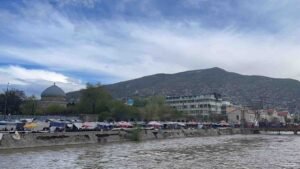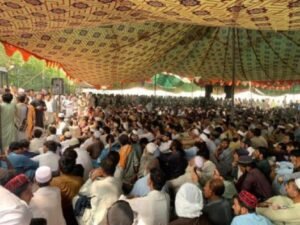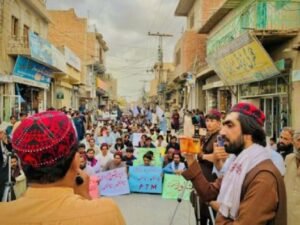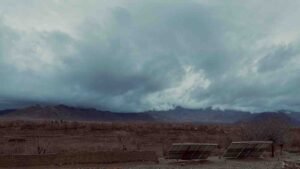Growing Concerns Over Terrorism Threats Emanating from Afghanistan
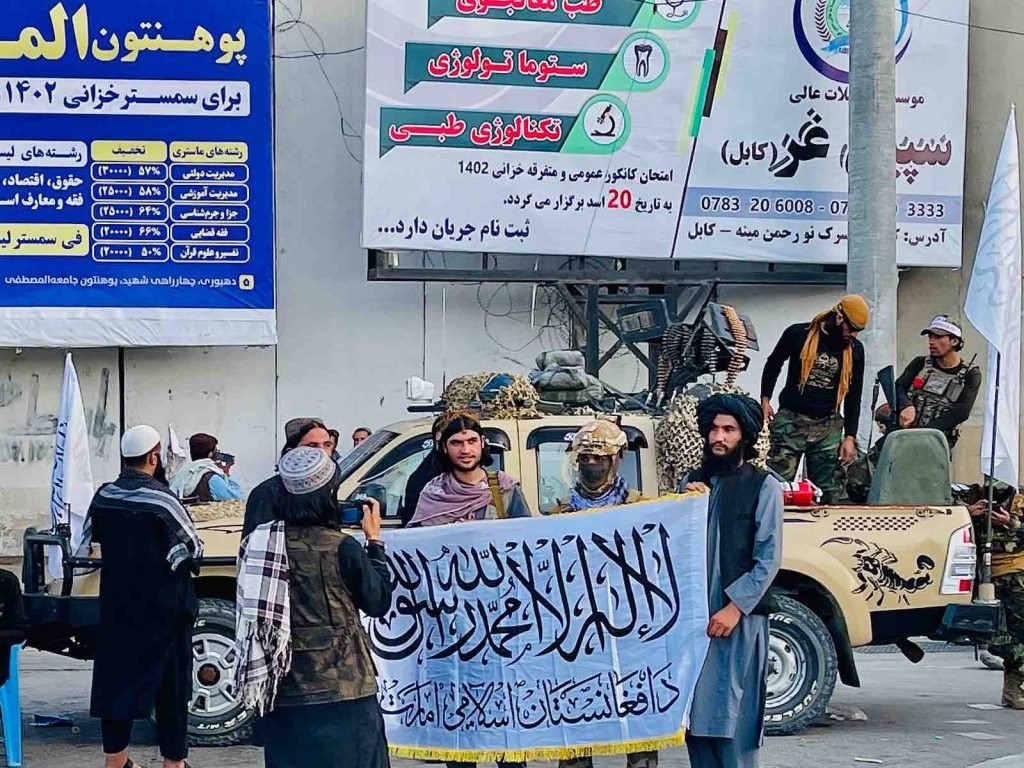
"There is no God but Allah. Mohammad is the Messenger of Allah" and underneath is the "Islamic Emirate of Afghanistan" is the official flag of the Taliban. They celebrated their second victory anniversary in Kabul August 2023. Photo: @AADIL for ADN
By Ilhamuddin Afghan
Following the Taliban’s comeback, global concerns as well as those of Afghanistan’s neighbors are alarmed by the terrorism threats that are becoming more and more prevalent in the region. Russia and China, in particular, have been vocal about their apprehensions regarding the escalating terrorism threats originating from Afghanistan.
Russian Defense Minister Sergei Shoigu recently addressed an international security conference, emphasizing that the region’s security, especially for Russian allies in Central Asia, is of paramount concern. Shoigu pointed to Afghanistan as the epicenter of contemporary challenges and threats, a country where international terrorist organizations have gained influence and grown significantly since the fall of the US-backed government in August 2021.
“Numerous radical extremist groups entrenched in the territory of Afghanistan pose the main threat, promoting their ideas and efforts in neighboring republics,” Shoigu said.
Echoing these sentiments, Russian Foreign Minister Sergey Lavrov expressed deep concerns about terrorist activities stemming from Afghan territory. Lavrov underscored the need to prevent terrorists, whether in Afghanistan, Syria, or elsewhere, from exploiting these regions for their nefarious operations.
China’s Defense Minister Li Shangfu also raised the issue of terrorism during the same international security conference, highlighting the commitment to peaceful resolutions and international consensus in resolving issues in Afghanistan, Iran, Ukraine and other regions.
However, it’s not just Russia and China sounding the alarm. Central Asian countries have also expressed distress over the spillover of terrorism from Afghanistan. At the United Nations Security Council, Under Secretary General of, UN Office of Counter-Terrorism Vladimir Vronkov drew attention to the dire security situation in Afghanistan. He noted the presence of not only Daesh but also 20 other active extremist groups in the country.
The United States, too, acknowledges the existence of terrorist groups in Afghanistan. Linda Thomas-Greenfield, the US representative at the United Nations, stressed the need to prevent South Asia and Afghanistan from becoming safe havens for terrorists, including Al-Qaeda and ISIS. Those terror groups have ill intentions to attack and have been instrumental in carrying out attacks in the region.
Pakistan has time and again blamed Afghanistan for the series of deadly terror attacks which has happened in various parts of Pakistan in the last two years. Though these attacks have been carried out by the home-grown Pakistani terror group TTP. Pakistan has stated that terrorists of TTP have been using Afghanistan as a safe haven and the Taliban have failed to act on these safe havens.
In response to these concerns, the Taliban has consistently denied any involvement in terrorism and asserted their commitment to acting against ISIS and other terrorist groups within Afghanistan to make the region safer. They have asked for continued international financial support to take decisive action against any such terror entities.
Nonetheless, reports of increasing attacks on the Taliban have surfaced. While various armed groups have claimed responsibility for these attacks in the name of Afghan freedom, experts suggest that many of them are perpetrated by ISIS, a group notorious for sowing instability in Afghanistan.
As terrorism threats from Afghanistan continue to raise concerns among its neighbors and global powers, the region remains in a delicate and precarious state.
Ilhamuddin Afghan is a university professor based in Afghanistan.
Note: The contents of the article are of sole responsibility of the author. Afghan Diaspora Network will not be responsible for any inaccurate or incorrect statement in the articles.



